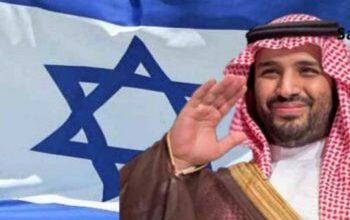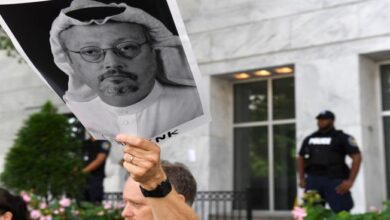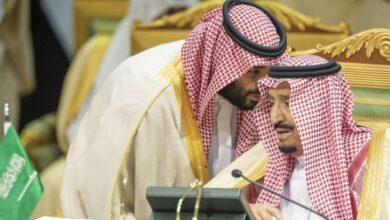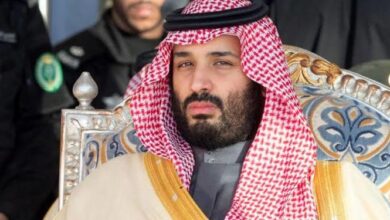Secret document proving Saudi conspiracy against Kuala Lumpur summit
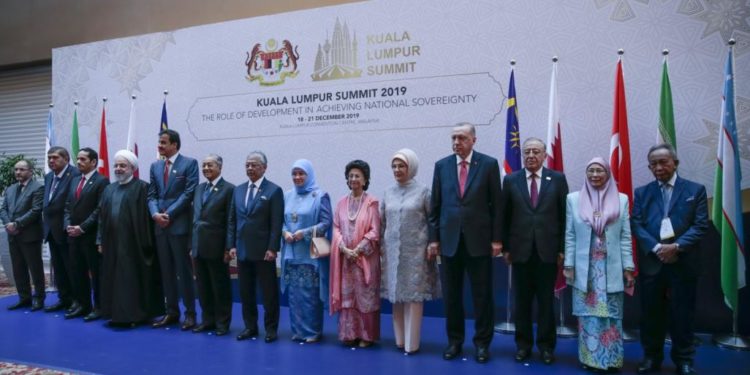
Middle East Eye website revealed that the Saudi regime has developed a secret media plan aimed at reducing the importance of the Kuala Lumpur Islamic Summit held in Malaysia in December last year, and the decisions issued by it.
The website highlighted that Riyadh was horrified by the prospect of major Islamic countries holding a summit in Kuala Lumpur outside the control of the Organization of Islamic Cooperation, which is chaired by the Kingdom, to the extent that prompted it to prepare a media campaign against the summit.
The website published a document belonging to the Ministry of Information in the Saudi system, entitled “the media campaign plan to confront the moves to hold a mini-Islamic summit at the invitation of Malaysia”, which includes details of a media campaign against the Kuala Lumpur Summit, and outlines its main goals and means of implementation.
The document revealed that the plan included a set of messages and statements and issued instructions to the affiliated media institutions and political commentators to spread these messages. Its media campaign against the summit also targeted newspapers, websites and TV channels in countries including Pakistan, Indonesia and many Arab countries.
The document states that the main objective of the campaign is to “reduce the importance of the summit and the decisions that can be issued from it in the absence or reduce the level of participation of Islamic countries with a pivotal role in leading the Islamic world and serving its issues.”
According to the website, the document included an acknowledgment by the Saudi Ministry of Information of the importance of the Kuala Lumpur Summit despite its efforts to undermine it. The document stated the following: “Given the importance of this event and its effects and dimensions on the path of joint Islamic action, a media plan has been prepared to highlight the joint Islamic action undertaken by the Cooperation Organization The Islamic role and pivotal role that the Kingdom plays in supporting this organization and its efforts.”
The document directed the media professionals to write about specific points aimed at intimidating the effects of holding the summit and questioning its goals, including the writing directive that holding a mini-summit in Malaysia outside the framework of the Organization of Islamic Cooperation would “encourage the establishment of similar blocs between other Islamic countries that have not been invited.” And the temptation of those countries to hold other summits, which will lead to wasting efforts and endeavors to reform the structure of the organization.
The site pointed to the remarkable absence of Pakistani Prime Minister Imran Khan from the mini-Islamic summit that Malaysia had invited and embraced in Kuala Lumpur on December 19, 2019, in the presence of the leaders of Iran, Turkey, Qatar and delegations from 56 countries.
He attributed the reasons for the retreat of Khan (Prime Minister of the second largest Islamic country in terms of population) from attending the summit to the determined efforts made by Riyadh to prevent him from attending.
He also pointed out that the pressures of the Saudi family over Khan included economic pressures, in February 2019, Crown Prince Muhammad bin Salman announced a total of investments in Pakistan worth twenty billion dollars.
The site said that Khan bowed to the pressure of Saudi and only sent his foreign minister to the Kuala Lumpur summit, but he may have regretted that decision later, and expressed this in a statement he made at a press conference in Kuala Lumpur earlier this month where he said, “he sees some of our close friends the summit will split the nation, but that is not its goal. I think that defining Islam and other nations to Islam is the duty of Islamic countries.”
According to the Middle East Eye report, the Ministry of Information document directed journalists and the media to highlight the cancellation of the Pakistani Prime Minister’s participation in the summit, and used it to question the possibility of any success outside the OECD framework.
The classified document revealed a set of means of implementation related to the campaign, including “directing the columnists to criticize any gathering for the purpose of achieving narrow political goals outside the cooperation organization” and directed to prepare television news reports highlighting the Kingdom’s role in establishing the cooperation organization and hosting political analysts in this framework.
These directives were circulated to the television channels, radio stations and local newspapers in the Kingdom.
The document also included a list of a number of foreign media institutions that the propaganda campaign is intended to target, including a number of Pakistani newspapers, Jordanian newspapers and websites, news channels, and newspapers in Egypt, Sudan, Iraq, Lebanon, Indonesia, and India.
The document also directed the implementation of a campaign on social media that takes advantage of those influencing those means to disrupt the summit.


